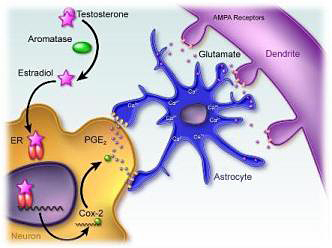Neuroendocrinology


The goal of researchers in the Neuroendocrinology Research Focus Group is to further the understanding of the basic mechanisms controlling reproduction, the development and maintenance of sex differences in the brain, and an individual's response to stress.
Understanding these basic processes is central to the development of treatments for infertility and contraception. Findings in this area are also important to refining the diagnosis and treatment of neurological disorders that are gender biased, such as major depression, anxiety disorders, attention deficit / hyperactivity disorder, obsessive compulsive disorder and autism. The potential contribution to all of these processes by chemicals in the environment that act as endocrine disrupters is an additional focus.
The post-genome era is an exciting one for the field of neuroendocrinology. Understanding the genetic basis of variability in physiology and behavior is an important stepping stone in establishing both the normal and abnormal responses of cells. Hormones are often the means by which signals from the environment are relayed to the organism, as they will vary in response to light, food, temperature, stress and population crowding, allowing the animal to adapt to challenges. It has recently been found that some pesticides and agents used in the generation of plastics can act as hormone mimetics, so-called endocrine disrupters, and can alter the normal functioning of the endocrine system and disrupt the delicate balance between the brain and body. The greater our understanding of the basic cellular processes regulated by hormones, the better our ability to detect subtle but detrimental effects of environmental contaminants.





